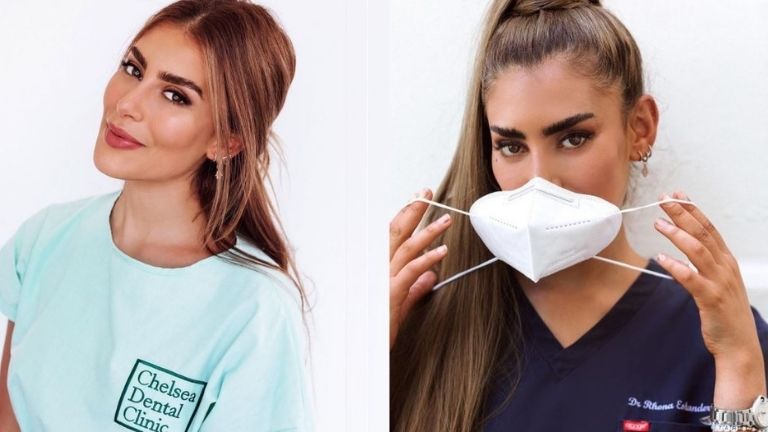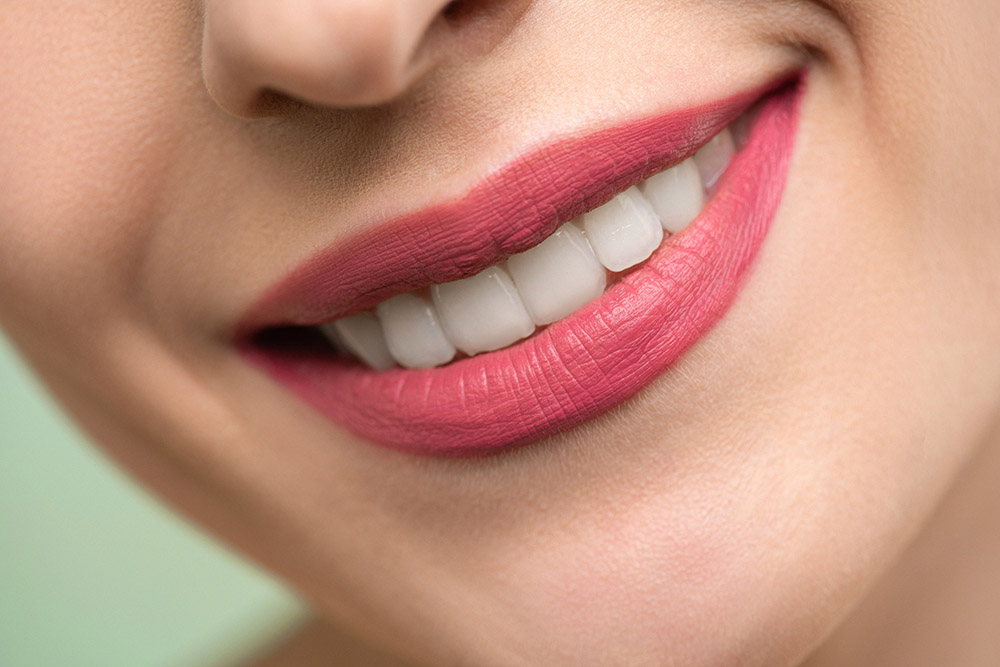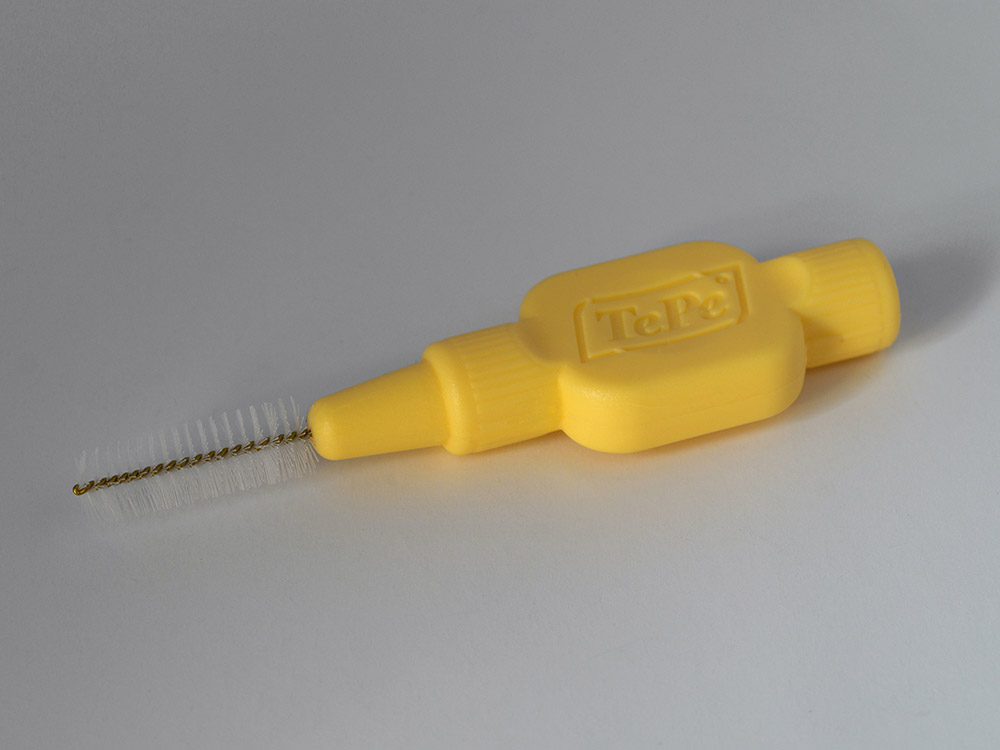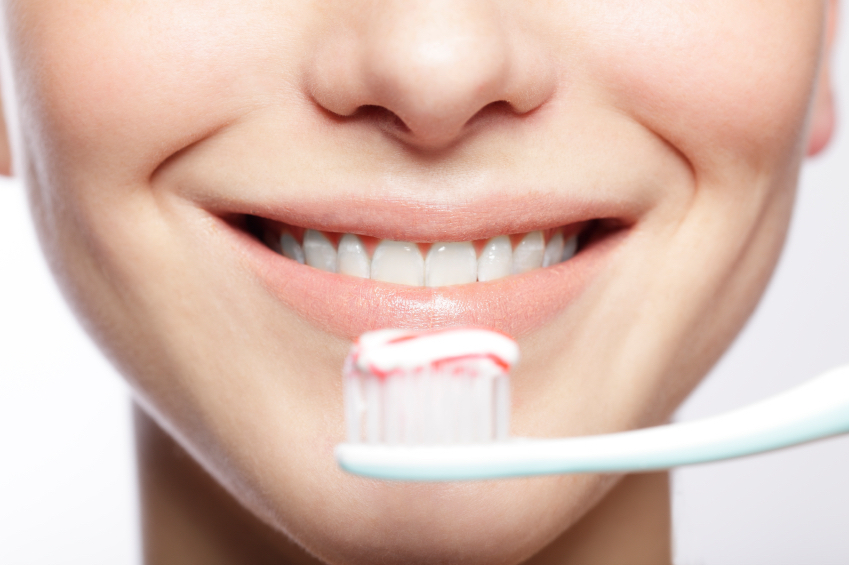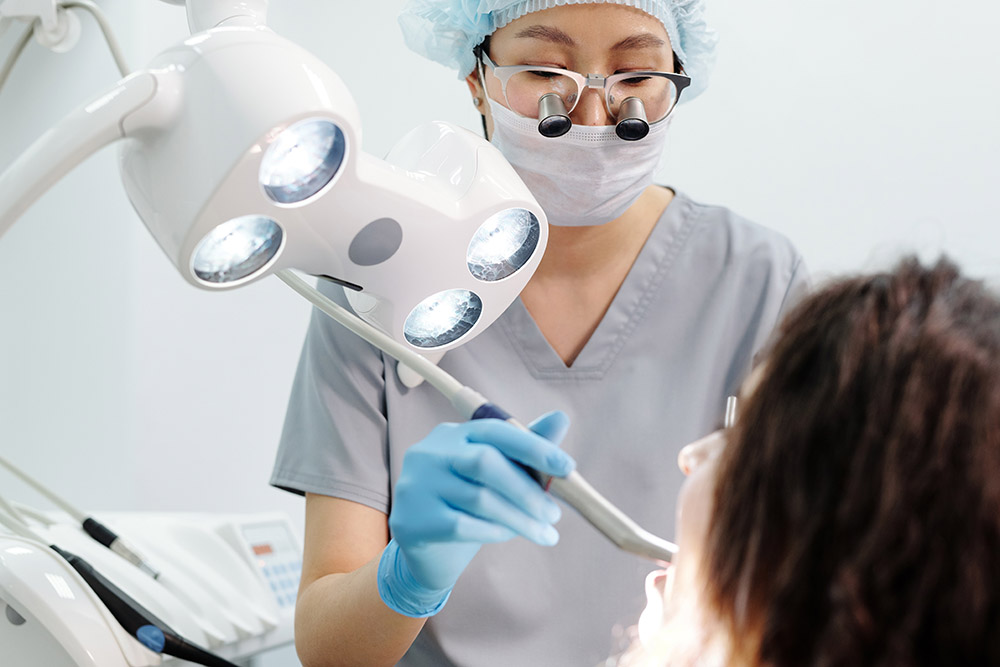Think you know how to keep your teeth healthy? We hope so – as it’s been revealed that 39 per cent of adults don’t visit the dentist regularly. Top London dentist Dr Rhona Eskander reveals 8 simple ways to look after our teeth
Eating, drinking, speaking, communicating – our mouth is one of the organs we use the most.
Despite being such an important part of the human body, the mouth is often misunderstood and overlooked. Yet having a healthy mouth and great smile can transform someones life for the better.
With skincare, people religiously follow intricate routines involving SPF, serums, moisturisors and more. However when trying to keep our teeth healthy, many people don’t invest their time or money in the same way.
In fact according to the Oral Health Foundation, a shocking 39 per cent of adults don’t go to the dentist regularly and what’s more alarming is that a whopping 66 per cent of adults even have visible plaque on their teeth.
When it comes to healthy teeth and gums, prevention is better than a cure, and so Healthista wanted to speak to a dentist who knows a thing or two about getting a perfect smile.
From her boutique Chelsea Dental Clinic, Dr Rhona Eskander provides all the cosmetic and general dentistry needed to create and maintain perfect smiles.
In fact, Dr Rhona has earned a legion of loyal fans for her smile make-overs, in particular the Instagram favourite #TheChelseaLook.
‘You need to invest in your teeth and gums and make that investment a habit. Spend quality time ensuring you are preventing oral diseases and maintaining a healthy mouth,’ explains Dr Rhona.
‘One of the most important things to recognise about oral health is that most dental diseases are preventable,’ continues Dr Rhona. ‘Yet most of the population only brush their teeth once a day’.
most dental diseases are preventable
‘This can lead to dental diseases such as dental caries – more commonly known as cavities or tooth decay – the most common dental issue. A sugary diet is also a main cause of dental disease, as are external factors such as smoking and a bad diet.
‘There have been studies to suggest that some people are genetically predisposed to suffer dental issues over others, but in general, with good oral hygiene and a healthy diet you can prevent dental decay’.
We all know the basics, such as brushing twice a day, but there are other practices we’re less aware of or flagrantly neglectful of – but if we can incorporate some healthy oral habits into our daily routines we can make a huge difference to the health of our teeth.
8 simple ways to keep your teeth healthy
#1 Limit fizzy drinks – have a milky tea instead
Fizzy drinks are a main contributor of tooth erosion – when the surface of the tooth is eroded.
In 2004, dentists found a strong link between fizzy drinks and tooth erosion. Recent figures released highlight the fact tooth erosion is 59 per cent higher amongst 12 year-olds and 220 percent greater among 14 year-olds who consume more fizzy drinks.
The acids and acidic sugars which can be found in most fizzy drinks actually soften the tooth enamel, but when this is paired with poor brushing and other conditions such as grinding your teeth, it can lead to tooth loss.
Thanks to polyphenols, tea can reduce gum inflammation
‘It’s not just fizzy drinks, healthy food and drinks that are seen to be healthy can actually have a damaging affect on your teeth and mouth too,’ reveals Dr Rhona.
‘The apple cider vinegar trend for example is bad news for your teeth as it’s extremely acidic and can even erode the teeth.
‘Lemon juice too is very bad for your teeth, and some people have completely destroyed their teeth from sucking lemons,’ adds Dr Rhona.
However, some drinks are very good for teeth. Milk, which is full of calcium helps to build strong tooth enamel and protects you against periodontal disease.
‘Dairy products in general are good for your teeth because they contain a high pH and are alkaline rather than acidic which helps to neutralise the acidity in the mouth,’ explains Dr Rhona.
Plus, tea contains polyphenols. Polyphenols are micronutrients from plant-based foods that help to kill bacteria. Thanks to polyphenols, tea can reduce gum inflammation, gum disease, and bad breath.
Tea also contains fluoride, which many people know helps your teeth to ward off decay. Fluoride is a mineral found in water, most foods and toothpaste – but is especially high in tea.
#2 Eat more alkaline foods
Every time we consume something, whether it’s food or a drink, the pH in the beverage or food has an effect on the mouth.
For example things that have a very high pH (acidic or sugary) alter the balance in the mouth. We all have bacteria in our mouths, but the danger is when the bacteria can thrive under acidic or sugary conditions.
Any food or drink that is alkaline is is the best choice when it comes to keeping your teeth healthy.
If you have something sugary or acidic, that bacteria will use what you have eaten or drank and from a tack on your teeth, eat away at the tooth structure. So you need to be sure not to feed that bacteria in your mouth.
try to avoid the dairy products with added sugars
Try eating lots of alkaline foods (i.e. alkaline forming foods), such as green vegetables, fruits, nuts, seeds and healthy oils. You can also take dietary supplements, such as wheatgrass and of course remember to drink plenty of alkaline water.
Dairy products like cheese and milk are great, but try to avoid the dairy products with added sugars or the ones that are low in fat as this usually means higher in sugar.
‘If you’re going to have a dessert, its better to have something like cheese and crackers rather than having chocolate or ice cream,’ suggests Dr Rhona.
‘Nuts are great for your teeth due to their alkaline levels and how they stimulate the saliva in your mouth,’ says Dr Rhona. ‘Peanuts also contain calcium and vitamin D which are again good for tooth enamel’.
Specific examples of alkaline foods include:
- Nuts
- Broccoli
- Asparagus
- Sweet Potato
- Citrus Fruits
- Carrots
#3 Clean between your teeth daily
The most common cause of bad breath – also known as halitosis – is when food is trapped in the gaps of our teeth, our gums or even on our tongue it can cause bad breath.
If the food is left for long periods, it can cause a more powerful odour as it decays, rots and disintegrates. Having holes in the teeth or rotten teeth also can cause bad breath.
‘You should be flossing between your teeth once a day, and ideally at a different time to brushing,’ explains Dr Rhona.
Flossing also known as interdental cleaning is when you use dental floss or interdental brushes – Tepe brushes – to remove food from between the teeth.
‘They look like little brushes that fit between the teeth to get rid of the bacteria and food. If this isn’t removed many people can get decay between the teeth, which is why it isn’t always good enough to just brush the surface of the teeth or only what is visible to us,’ Dr Rhona expands.
‘I also suggest flossing at a time that isn’t when you are brushing your teeth – especially not in the morning. This is because you’ve only just woken up, and so you aren’t going to have anything stuck between your teeth like you would after eating a meal.
‘What I suggest is that you make sure your getting in between your teeth after you have eaten a meal – be that breakfast, lunch or dinner.
‘You can also try brushing your tongue or use a tongue scraper. The tongue actually harbors lots of bacteria which can cause bad breath,’ adds Dr Rhona.
#4 Chew sugar free chewing gum after a meal
‘Many people don’t know that chewing sugar free gum after a meal is a really good way to stimulate your saliva and neutralise the acid in your mouth,’ reveals Dr Rhona.
‘Especially after an acidic meal, chewing gum will not only protect your teeth against acid but will also help to prevent bad breath’.
#5 Brush your teeth the correct way
Each oral hygienist seems to give different advice on how to brush your teeth correctly, but generally when using a manual toothbrush, holding your brush at a 45 degree angle and brushing up and down using short strokes is a good method.
It’s important to hit all those hard to reach areas in order to clean away plaque which can cause damage if it is left. It’s also important to start brushing your teeth in different sections in avoid becoming lazy.
start brushing your teeth in different sections in avoid becoming lazy
If you wear dentures, then brushing may not be the correct option. Soaking your dentures in a special cleaning solution and using a soft denture brush to clean them before rising them thoroughly with water is a popular method.
Dentures are not just for elderly relatives, they are actually quite common amongst adults in their 40’s.
A survey from 2009 found that approximately 20 million women in the US who were aged 40 or over wear full of partial dentures; that is 19 per cent of the population.
‘If you are brushing everyday, twice a day for two minutes then you are absolutely fine, you don’t need to be excessive about it.
‘In fact, it’s really important not to be excessive when brushing your teeth because you could end up scrubbing away the gums. This is known as abrasion which can cause gum recession and the brushing away of your enamel (especially if you are using an abrasive toothpaste)’.
#6 Brush your teeth BEFORE breakfast
When we sleep there is a drop in the amount of saliva in our mouths. Saliva is the first defense against acidic foods as it neutralises the acid in your mouth, so if this is lacking there is a higher risk of tooth decay.
Because of this drop in saliva, it’s best to give our teeth a boost of fluoride as soon as we wake up in the morning – before breakfast. By doing so, you are protecting your enamel from a possible acidic breakfast.
‘If you eat breakfast before you brush your teeth be sure to wait at least half an hour after you have eaten,’ suggests Dr Rhona.
‘If you brush your teeth too soon after you have eaten breakfast you will be brushing away enamel that has already been softened after food and after the drop in your saliva while you slept.
‘By waiting 30 minutes you are allowing your saliva to re-strengthen your tooth enamel’.
#7 Dental check-ups – don’t avoid them
Check-ups are daunting, there’s no doubt about it, but you need to realise that everyone has similar hang-ups, so just be sure not to let it turn into a phobia.
A check-up is essential not just in diagnosing faults, but in enhancing the health of your teeth and gums.
When it comes to how often you should have a check-up, your dentist will let you know as it depends on your oral health. However every six months is advisable.
‘You need to be visiting your dentist and hygienist every six months,’ Dr Rhona asserts.
‘Hygienists look into your gum health in more detail than your dentist does. Gums are the supporting structure for the teeth, so if you skip seeing the hygienist and only see the dentist, you could run the risk of gum disease and if that happens your teeth could quite literally fall out’.
#8 Drink plenty of water
Not only does water hydrate us, it washes away the kinds of harmful bacteria that can build up in a dry mouth.
Lying with a dry mouth overnight makes your mouth a breeding ground for bacteria and the same applies to a limited water intake during the day.
‘Drinking water is excellent for your teeth as it neutralises acid,’ explains Dr Rhona.
‘Make sure to drink plenty of water throughout the day to keep your mouth and body hydrated, the recommended amount to drink each day is eight 200ml glasses.
‘Oh and let me say one more time limit or avoid fizzy drinks they are full of sugar and bad news for your teeth’.
More Healthista Content:
F45 Nutritionist reveals how you can snack smarter and cut those cravings
Journalling – why is everyone doing it? Psychotherapist reveals 5 benefits
Want shiny, long hair? Nutritionist reveals 5 key foods for healthy hair growth
Pregnancy and exercise – 7 things expectant mums need to know
Like this article? Sign up to our newsletter to get more articles like this delivered straight to your inbox.



